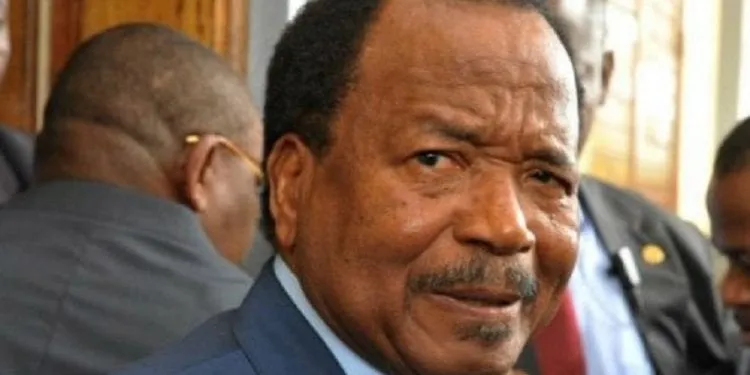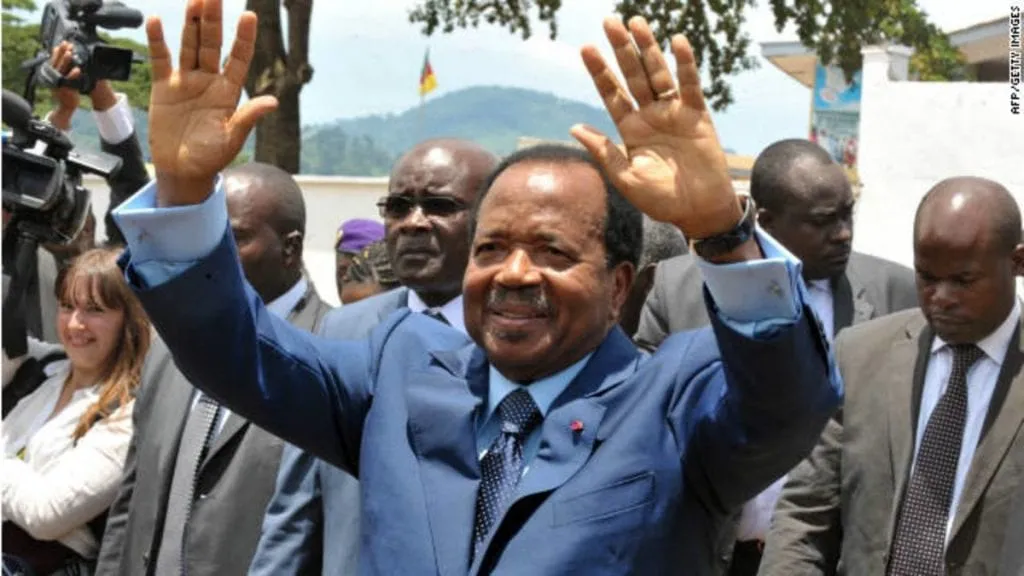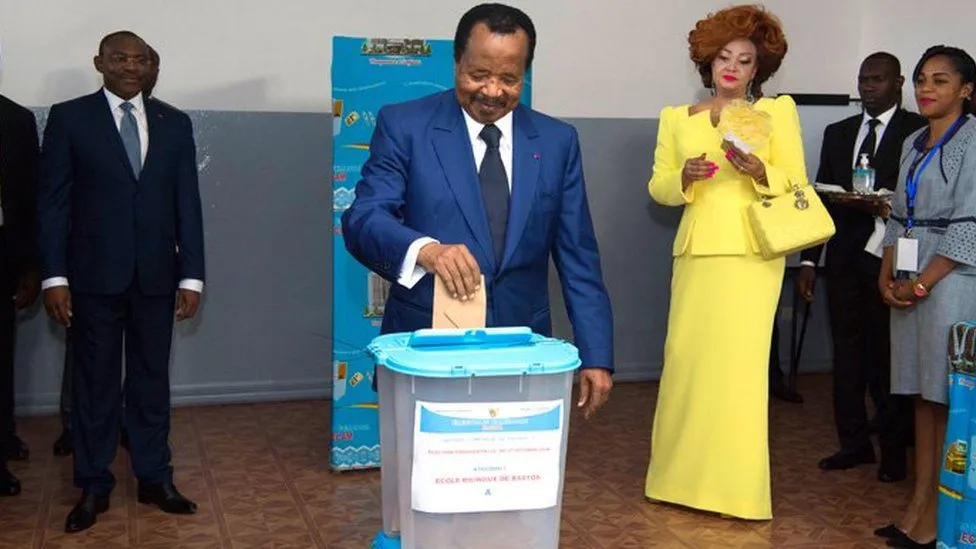As other governments the world over are racing to ease the pain facing their economies as the coronavirus pandemic makes its swift pivot from a public health crisis to financial catastrophe, Cameroon’s president Paul Biya may use the situation as justification for his government’s umpteenth failure.
It is true that the damage from COVID-19, the disease caused by the new virus, is unlike anything in modern times. Economists have warned the fallout could be similar to that from the 2008 recession, the worst downturn that many Cameroonians can remember. How will they forget? Was it not in 2008 that Biya stealthily constitutionalised his life presidency project when he removed term limits? Is it not in 2008 when Cameroonians were on hunger protest that soldiers shot live bullets into the crowds?
That aside, President Paul Biya’s 2020 report card has nothing to write home about, but for the bloodshed here and there and the generalised failure of the statecraft to arrest present-day challenges.
The reasons are stark. At least 25,087 Cameroonians have had COVID-19. The separatist conflict in the North West and South West Regions is into its fifth year. Boko Haram has resumed bloody attacks in the Far North Regions. Kidnappers are still operating in the Adamawa region. The East Region is insecure as violence in the Central African Republic spills over. The ethno-political atmosphere in the country is volatile as Maurice Kamto of the Cameroon Renaissance Movement is yet to forgive the regime for denying him victory at the 2018 presidential election. It is not clear yet when these crises will be over.
Unemployment numbers are expected to skyrocket to proportions unseen as businesses are shutting down under the weight of the Anglophone crisis and the COVID-19 pandemic.
Although Government declared economic emergency for the North West, South West and Far North Regions, the people in these areas are yet to have a feel of the move. In fact, measures taken are so far pale in comparison to what economists say will be required to stave off the crises’ worst consequences.
The International Crisis Group notes “Cameroon’s structural weaknesses (hyper-centralisation, no separation of powers, restriction of civil liberties, corruption of state officials, weak institutions and failure to renew its leadership) are becoming more problematic each passing year. President Paul Biya, in power for 38 years, governs through a combination of clientelism, manipulation of ethnic rivalries and routine human rights violations.”
Cameroon has a reputation for corruption. In 1998 and 1999 it was ranked bottom of the Transparency International Corruption Perceptions Index, and in 2017 it was rated 153rd out of 180 countries. Although Biya is recognized as the legitimate president of Cameroon, his democratic credentials are questionable.
The country’s human rights records are very bad. Human Rights Defenders like Barristers Agbor Nkongho and Tamfu Richard can better conceptualise the depths of human rights violations in the country. Opposition leaders like Ni John Fru Ndi and Kamto know just so well how elections are short-changed in Cameroon.
On December 31, 2019, Paul Biya in an address to the nation noted, “the security situation in our North-West and South-West Regions was still a cause for concern despite calls for insurgents to lay down their arms. Accordingly, finding a solution had to be given priority.”
One year on, the situation has gone from bad to worse. The summary execution by soldiers of children, and pregnant women, among other civilians, in Ngarbuh on February 14, 2020 is an inescapable stain on Biya’s bloody 2020 report card. Journalist Samuel Wazizi was said to have died in military custody but his corpse has not been seen. Nothing is known of what became of the inquiry the French Ambassador said Biya had ordered into the matter.
The killing of civilians in Muyuka and Bamenda, and the killing of seven schoolchildren by gunmen in Kumba only give an idea of how bad the situation has become. But Biya had boasted that the situation was under control and that the 2019 Major National Dialogue was the magic solution.
Hear Biya: “Without a doubt, this is one of the most urgent problems at the moment. The criminal activities of armed groups continue to disrupt public, economic, and social life in these regions, yet various measures have been taken in recent months to reason with these youths, most of who have been brainwashed. They have been called upon to lay down their weapons, and social reintegration prospects have been offered them.”
No one needs rocket science to know that this was mere rhetoric. Even the youths who have dropped their weapons say they are yet to be reintegrated into society. Videos of a crying Yanick Kawa Kawa and audios of a regretful ‘General’ Nambere are telling of the situation.
Biya had said for those who persist in going down the wrong road and continue to use violence, the state will have no other choice than to combat them in order to protect all our fellow citizens. “Our Defence and Security Forces will, once again, perform their duty with restraint, but without weakness,” Biya said. But the atrocities of Biya’s troops are alarming. In fact, those who see a conspiracy may be right. What accounts for the fact that the separatist camps in Alabukam in the heart of Bamenda is still operational? How can government claim that it is trying to restore security in the North West Region, for example when Bamenda is itself not safe? How is it that “Operation Clean Bamenda” rather killed civilians and burnt their homes?
It took Biya one year after to call for Regional Elections. Even at that, Government’s willingness to devolve to local authorities the powers that would enable them to play a greater role in managing local affairs remains unreal. Governors, SDOs and Dos will still laud it over elected officials.
The so-called provisions made to fast-track the promotion of bilingualism and multiculturalism remain in the drawers.
“A Major National Dialogue that will, in line with our Constitution, enable us to seek ways and means of meeting the profound aspirations of the people of the North-West and South-West Regions, but also of all the other components of our Nation” actually failed. The crisis has rather worsened. Not even administrators function in the North West and South West Regions, not even in the comfort of armoured cars and sophisticated military firepower.
Biya said last year that economic growth was improving, but needed to be strengthened to stay on the path of emergence. If there was any improvement, then everything must have crumbled. Sporting facilities expected to have been ready for the 2019 African Nations Cup are not ready as the country was reprogrammed to host the competition in 2021.
Social progress in Cameroon is a mere rhetoric. Education, health, employment, etc., among others are on an all-time low, if one were to look at the glory days of the albeit dictatorial era of late President Amadou Ahidjo.
In 2020, President Paul Biya’s report card reads: Rigged February, March and December elections, rape, summary executions, looting, hunger, thirst, corruption, innocent deaths and the list is long.
But for how much longer, oh Lord?
Mimi Mefo Info






